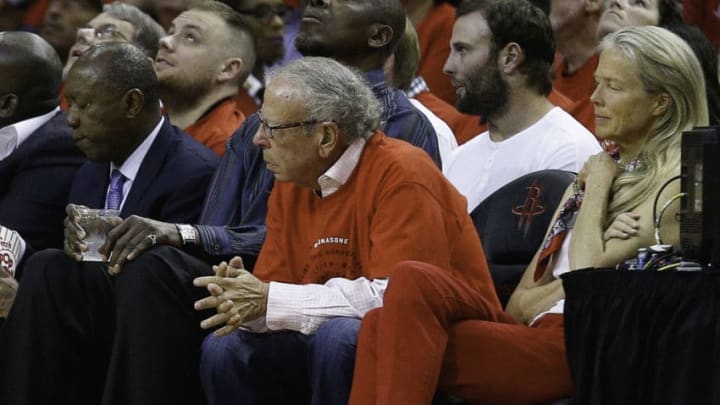In a shocking development, the Houston Rockets are now up for sale. At a time in which the team is very successful, how will this sale impact the future?
When Houston Rockets CEO Tad Brown announced on Monday that owner Leslie Alexander has intentions to sell the team, everyone around the NBA was shocked. There were no previous rumors or indications that Alexander had such plans, especially as the Rockets look to be one of the best teams in the league next season.
However, it’s likely that the sentence above (along with other existing factors surrounding the team) is why Alexander is looking to sell. From a purely business perspective, Alexander is making the best choice by selling high on the Rockets. Let’s take a quick look at what the Rockets have going for them:
- MVP candidate locked up through his prime (until 2023)
- Hall-of-Famer and “Point God” potentially locked up for next 4-5 years
- One of the best general managers in the league signed for the next four years
- One of, if not the most popular NBA teams in China
Houston has its star player and general manager locked up for the foreseeable future, and when you combine that with the fact that they could shortly be assembling a “Big Three” of their own, the Rockets look to be set up for sustained success in the coming years.
When Forbes released their annual team evaluations in February, the Rockets were valued at $1.65 billion. However, since then the team has signed James Harden and Daryl Morey to extensions, acquired Chris Paul and could very well trade for Carmelo Anthony.

Space City Scoop
Then you consider their international presence (especially in China) and it’s easy to see why and how someone would buy the Rockets for close to $2 billion. Steve Ballmer purchased the Los Angeles Clippers for $2 billion, and that changed how some NBA teams are now evaluated. The Rockets are not in as big a market as the Clippers, but Houston is a big market itself and the Rockets have a greater international presence than Lob City.
However, selling the team at this time could change things for the Rockets moving forward. Leslie Alexander was one of the best owners in the league for several reasons: He mostly stayed out of basketball operations and was willing to pay what it takes to put a winning team on the court.
Those are very important aspects of being an owner, as we have both seen teams build their teams due to a desire to avoid the luxury tax (see: Thunder, Oklahoma City) and teams be corrupted by poor ownership (see Knicks, New York).
Will the next owner (or owners) of the Rockets be willing to stay out of basketball operations? Will the owner(s) be willing to pay the luxury tax in exchange for acquiring (and keeping) top talent? Those are two very important questions that must be answered by the next ownership.
If the next owner decides to have a larger presence in basketball operations, that can limit and prevent Daryl Morey from properly doing his job. If the owner isn’t willing to spend like Leslie Alexander was, then the Rockets may have to drastically change how they build their team.
Next: 2017 NBA free agency tracker - Grades for every deal so far
It’s safe to say that although Tad Brown and co. are looking to sell to a stable owner that won’t change much in the organization, there are still key ways that the sale of the Rockets can affect the team’s future moving forward.
